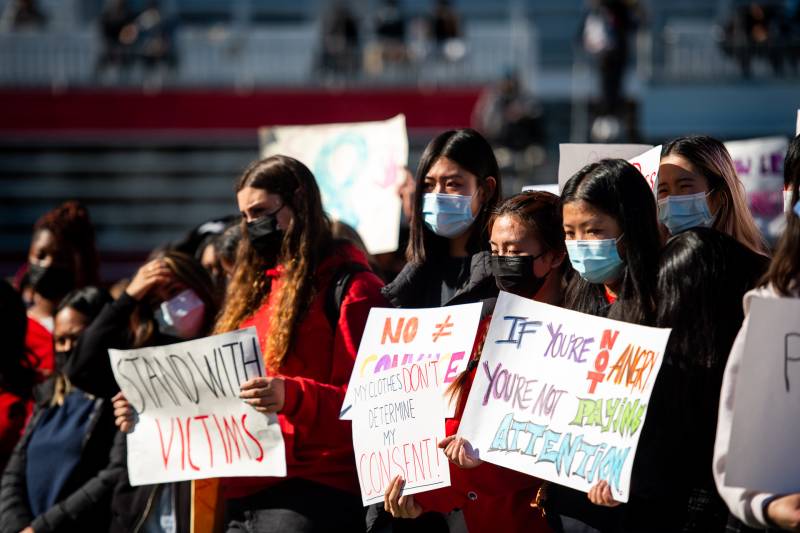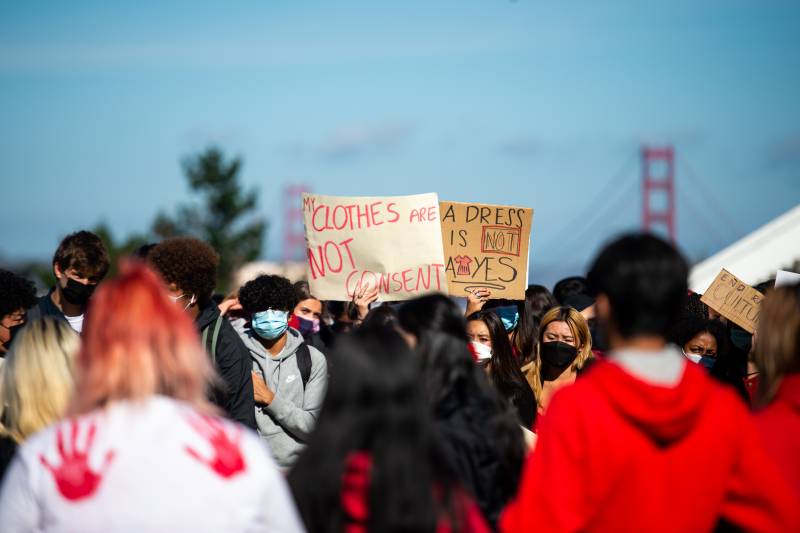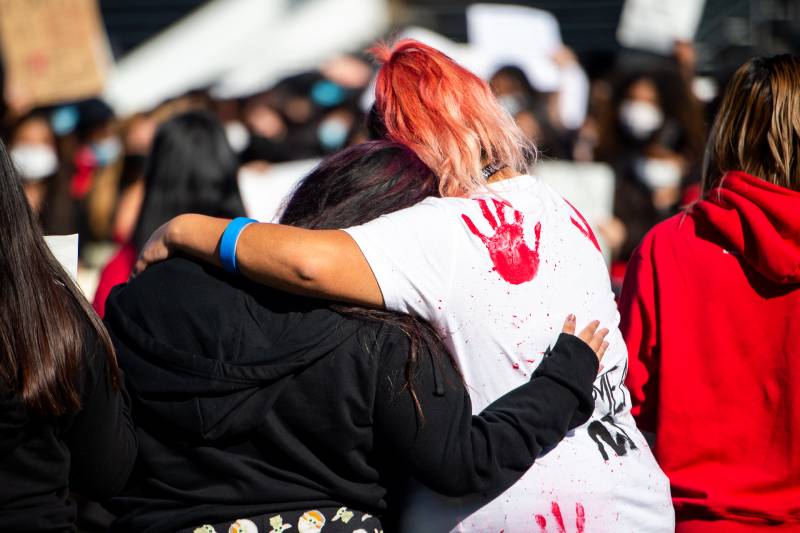Hundreds of students from at least three San Francisco high schools walked out of class on Wednesday to show solidarity with sexual assault survivors, and to call for administrators to hold perpetrators accountable.
The actions at George Washington High School, Lowell High School and Abraham Lincoln High School follow similar recent protests at other Bay Area high schools.
At George Washington High School, hundreds of students gathered at the football field wearing red and black to show support for survivors. They held signs that read "Boys Will be Boys Who Respect Girls" and "If You're Not Angry, You're Not Paying Attention."
"We wanted to show the district and show the administration that there are people who really care,” said Ha Bui, a senior and one of the organizers at George Washington High School.

The students protesting say they want protection even when abuse occurs off campus, and more trauma-informed protocols for people who report abuse.


